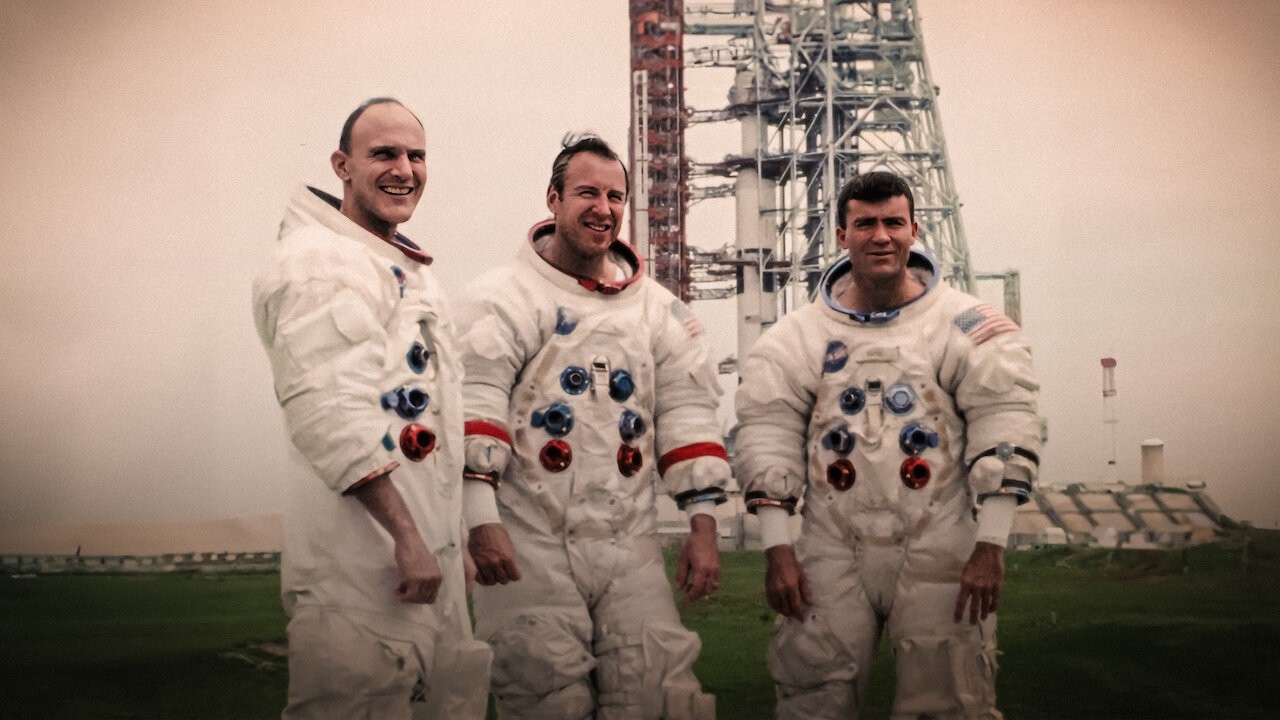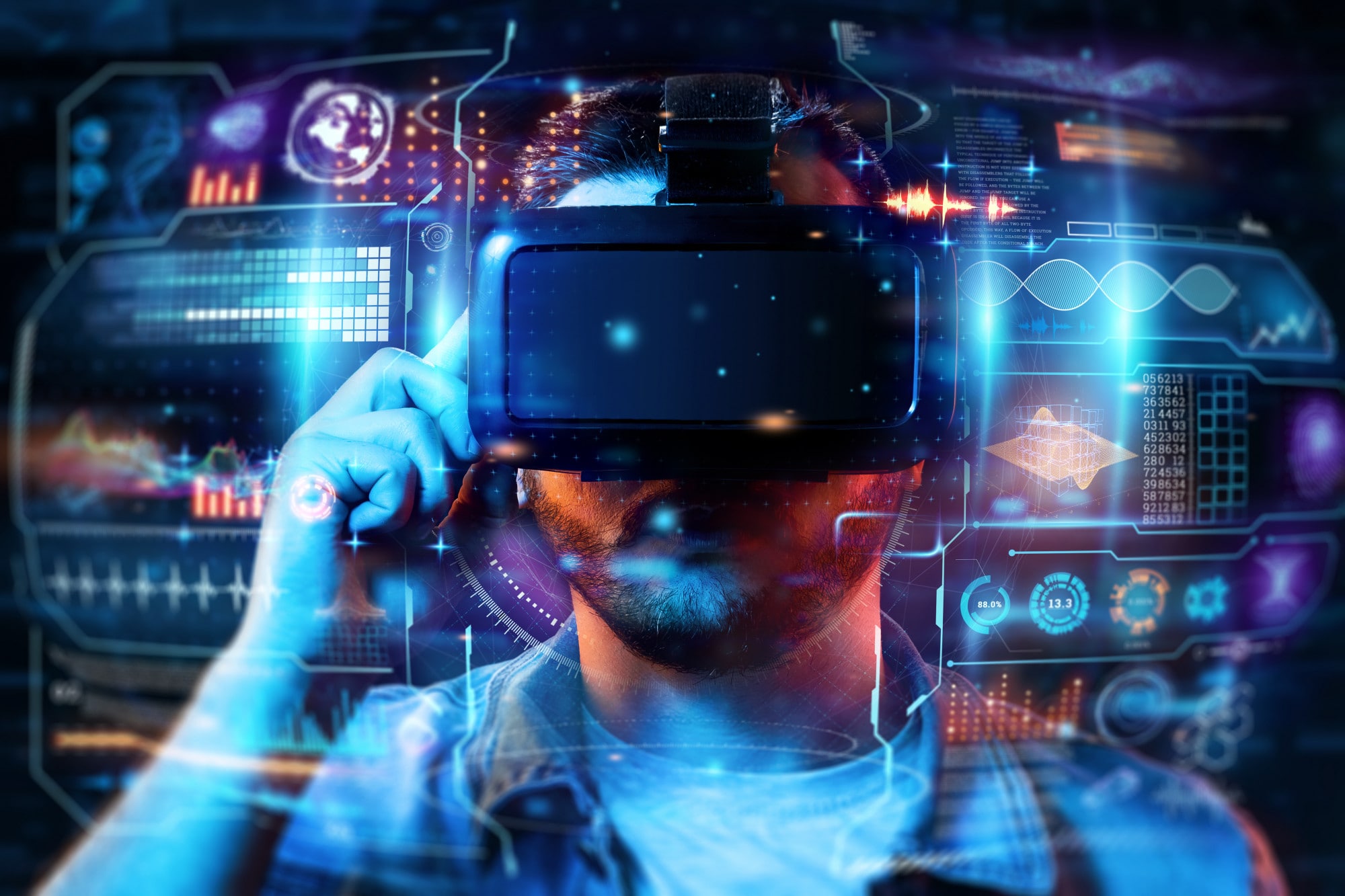
IMMERSIVE LEARNING JOURNEYS

IMMERSIVE LEARNING JOURNEYS
Embark on Epic Adventures: Discover the Catalyst Curriculum
Our curriculum is designed as a series of exciting missions, each one an immersive adventure. Explore trailers, mission details, and see how our lessons turn learning into a thrilling journey.
Choose Your Mission


The Mission
Apollo 13 Rescue Mission
Mission Objective
Bring the Apollo 13 astronauts home safely. You’ll apply algebra to calculate trajectories, use writing to document strategies, and make critical trade-off decisions under pressure. Along the way, you’ll explore the history of the mission, sharpen your problem-solving, and practice teamwork. Every decision counts—the astronauts are depending on you!



Difficulty Level: Moderate
Grade Level: 8th - 10th Grade
Subject: Algebra 1
In the Apollo 13 rescue simulation, you’ll apply algebra to calculate trajectories, manage resources, and make critical decisions to bring the astronauts home safely.
You’ll develop writing skills as you document your strategies and reasoning, learning how to communicate clearly under pressure.
Along the way, you’ll explore the historical significance of the mission, gaining insights into teamwork, problem-solving, and leadership.
This immersive experience will sharpen your math, writing, and decision-making skills while giving you a deeper appreciation for the resilience and quick thinking that saved the Apollo 13 crew.

Explore the
Full Journey of Your Mission
Dive into the mission details and discover each step of the process. From learning core concepts to applying hands-on skills, explore how you will complete this exciting challenge.


Algebra 1
Throughout this mission, you'll use algebra to solve critical problems related to fuel consumption, trajectory calculations, and timing. You’ll apply equations to determine safe reentry paths and manage limited resources, ensuring the survival of the Apollo 13 crew while honing your algebraic reasoning and problem-solving skills.
Trigonometry
In this phase, you’ll apply trigonometric principles to guide the Apollo 13 spacecraft’s reentry back to Earth—without the aid of GPS. You'll calculate angles, distances, and trajectories using only limited data, ensuring the spacecraft safely navigates through Earth's atmosphere.
Space and the Human Body
Physics of Propulsion
Effective Writing
Learning Outcomes
Mathematical Application
Apply algebraic concepts to solve real-world problems, such as calculating trajectories and resource management. Develop the ability to use math as a practical tool in high-pressure situations.
Crisis Management
Learn how to make critical decisions under pressure, taking into account resource constraints and mission objectives. Improve your ability to assess risks and choose the best course of action in uncertain situations.
Collaboration and Teamwork
Gain an understanding of the historical context of the Apollo 13 mission and its significance. Learn how effective teamwork, leadership, and resilience were crucial to overcoming challenges and ensuring the astronauts' safe return.
Technical Writing
Develop clear and concise writing skills by documenting strategies, reasoning, and problem-solving processes. Learn to communicate effectively, especially when explaining complex decisions during a crisis.
Mathematical Application
Apply algebraic concepts to solve real-world problems, such as calculating trajectories and resource management. Develop the ability to use math as a practical tool in high-pressure situations.
Crisis Management
Learn how to make critical decisions under pressure, taking into account resource constraints and mission objectives. Improve your ability to assess risks and choose the best course of action in uncertain situations.
Collaboration and Teamwork
Gain an understanding of the historical context of the Apollo 13 mission and its significance. Learn how effective teamwork, leadership, and resilience were crucial to overcoming challenges and ensuring the astronauts' safe return.
Technical Writing
Develop clear and concise writing skills by documenting strategies, reasoning, and problem-solving processes. Learn to communicate effectively, especially when explaining complex decisions during a crisis.
Mathematical Application
Apply algebraic concepts to solve real-world problems, such as calculating trajectories and resource management. Develop the ability to use math as a practical tool in high-pressure situations.
Crisis Management
Learn how to make critical decisions under pressure, taking into account resource constraints and mission objectives. Improve your ability to assess risks and choose the best course of action in uncertain situations.
Collaboration and Teamwork
Gain an understanding of the historical context of the Apollo 13 mission and its significance. Learn how effective teamwork, leadership, and resilience were crucial to overcoming challenges and ensuring the astronauts' safe return.
Technical Writing
Develop clear and concise writing skills by documenting strategies, reasoning, and problem-solving processes. Learn to communicate effectively, especially when explaining complex decisions during a crisis.
Mathematical Application
Apply algebraic concepts to solve real-world problems, such as calculating trajectories and resource management. Develop the ability to use math as a practical tool in high-pressure situations.
Crisis Management
Learn how to make critical decisions under pressure, taking into account resource constraints and mission objectives. Improve your ability to assess risks and choose the best course of action in uncertain situations.
Collaboration and Teamwork
Gain an understanding of the historical context of the Apollo 13 mission and its significance. Learn how effective teamwork, leadership, and resilience were crucial to overcoming challenges and ensuring the astronauts' safe return.
Technical Writing
Develop clear and concise writing skills by documenting strategies, reasoning, and problem-solving processes. Learn to communicate effectively, especially when explaining complex decisions during a crisis.
Mathematical Application
Apply algebraic concepts to solve real-world problems, such as calculating trajectories and resource management. Develop the ability to use math as a practical tool in high-pressure situations.
Crisis Management
Learn how to make critical decisions under pressure, taking into account resource constraints and mission objectives. Improve your ability to assess risks and choose the best course of action in uncertain situations.
Collaboration
and Teamwork
Gain an understanding of the historical context of the Apollo 13 mission and its significance. Learn how effective teamwork, leadership, and resilience were crucial to overcoming challenges and ensuring the astronauts' safe return.
Technical Writing
Develop clear and concise writing skills by documenting strategies, reasoning, and problem-solving processes. Learn to communicate effectively, especially when explaining complex decisions during a crisis.

Pre-Requisites

Basic Research Skills
Before starting this mission, students should be familiar with basic research techniques, including how to gather, evaluate, and cite reliable sources.
Fundamental Math Concepts
Students should have a strong understanding of basic algebra and geometry, as these concepts will be applied throughout the mission in various problem-solving tasks.
Introductory Science Knowledge
Students must have a foundational understanding of scientific concepts, such as the scientific method, basic chemistry, and physics, as they will build on these in the mission.
Team Collaboration Experience
Prior experience working in teams is required. Students should understand how to communicate effectively, divide tasks, and collaborate to achieve a common goal.
Choose Your Mission
Choose Your Mission

Hear Directly From Parents
Parent Reviews:
Real Stories, Real Impact
Sarah Mitchell
Mother of Lucas
"Catalyst Academy has transformed the way my son approaches learning. The hands-on missions have sparked his creativity and deepened his understanding of complex topics."
Maria Gonzalez
Mother of Sofia
"Sofia’s curiosity has flourished since starting at Catalyst Academy. The innovative teaching methods have made learning fun, and she’s more engaged than ever."
John Davis
Father of Emma
"Since joining Catalyst, Emma has grown in confidence and problem-solving skills. She’s excited to participate in every mission and always looks forward to new challenges."
Sarah Mitchell
Mother of Lucas
"Catalyst Academy has transformed the way my son approaches learning. The hands-on missions have sparked his creativity and deepened his understanding of complex topics."
Maria Gonzalez
Mother of Sofia
"Sofia’s curiosity has flourished since starting at Catalyst Academy. The innovative teaching methods have made learning fun, and she’s more engaged than ever."
John Davis
Father of Emma
"Since joining Catalyst, Emma has grown in confidence and problem-solving skills. She’s excited to participate in every mission and always looks forward to new challenges."
Sarah Mitchell
Mother of Lucas
"Catalyst Academy has transformed the way my son approaches learning. The hands-on missions have sparked his creativity and deepened his understanding of complex topics."
Maria Gonzalez
Mother of Sofia
"Sofia’s curiosity has flourished since starting at Catalyst Academy. The innovative teaching methods have made learning fun, and she’s more engaged than ever."
John Davis
Father of Emma
"Since joining Catalyst, Emma has grown in confidence and problem-solving skills. She’s excited to participate in every mission and always looks forward to new challenges."
Sarah Mitchell
Mother of Lucas
"Catalyst Academy has transformed the way my son approaches learning. The hands-on missions have sparked his creativity and deepened his understanding of complex topics."
Maria Gonzalez
Mother of Sofia
"Sofia’s curiosity has flourished since starting at Catalyst Academy. The innovative teaching methods have made learning fun, and she’s more engaged than ever."
John Davis
Father of Emma
"Since joining Catalyst, Emma has grown in confidence and problem-solving skills. She’s excited to participate in every mission and always looks forward to new challenges."


The Mission
Apollo 13 Rescue Mission
Mission Objective
Bring the Apollo 13 astronauts home safely. You’ll apply algebra to calculate trajectories, use writing to document strategies, and make critical trade-off decisions under pressure. Along the way, you’ll explore the history of the mission, sharpen your problem-solving, and practice teamwork. Every decision counts—the astronauts are depending on you!



Difficulty Level: Moderate
Grade Level: 8th - 10th Grade
Subject: Algebra 1
In the Apollo 13 rescue simulation, you’ll apply algebra to calculate trajectories, manage resources, and make critical decisions to bring the astronauts home safely.
You’ll develop writing skills as you document your strategies and reasoning, learning how to communicate clearly under pressure.
Along the way, you’ll explore the historical significance of the mission, gaining insights into teamwork, problem-solving, and leadership.
This immersive experience will sharpen your math, writing, and decision-making skills while giving you a deeper appreciation for the resilience and quick thinking that saved the Apollo 13 crew.

Explore the
Full Journey of Your Mission
Dive into the mission details and discover each step of the process. From learning core concepts to applying hands-on skills, explore how you will complete this exciting challenge.


Algebra 1
Throughout this mission, you'll use algebra to solve critical problems related to fuel consumption, trajectory calculations, and timing. You’ll apply equations to determine safe reentry paths and manage limited resources, ensuring the survival of the Apollo 13 crew while honing your algebraic reasoning and problem-solving skills.
Trigonometry
In this phase, you’ll apply trigonometric principles to guide the Apollo 13 spacecraft’s reentry back to Earth—without the aid of GPS. You'll calculate angles, distances, and trajectories using only limited data, ensuring the spacecraft safely navigates through Earth's atmosphere.
Space and the Human Body
Physics of Propulsion
Effective Writing
Learning Outcomes
Mathematical Application
Apply algebraic concepts to solve real-world problems, such as calculating trajectories and resource management. Develop the ability to use math as a practical tool in high-pressure situations.
Crisis Management
Learn how to make critical decisions under pressure, taking into account resource constraints and mission objectives. Improve your ability to assess risks and choose the best course of action in uncertain situations.
Collaboration and Teamwork
Gain an understanding of the historical context of the Apollo 13 mission and its significance. Learn how effective teamwork, leadership, and resilience were crucial to overcoming challenges and ensuring the astronauts' safe return.
Technical Writing
Develop clear and concise writing skills by documenting strategies, reasoning, and problem-solving processes. Learn to communicate effectively, especially when explaining complex decisions during a crisis.
Mathematical Application
Apply algebraic concepts to solve real-world problems, such as calculating trajectories and resource management. Develop the ability to use math as a practical tool in high-pressure situations.
Crisis Management
Learn how to make critical decisions under pressure, taking into account resource constraints and mission objectives. Improve your ability to assess risks and choose the best course of action in uncertain situations.
Collaboration and Teamwork
Gain an understanding of the historical context of the Apollo 13 mission and its significance. Learn how effective teamwork, leadership, and resilience were crucial to overcoming challenges and ensuring the astronauts' safe return.
Technical Writing
Develop clear and concise writing skills by documenting strategies, reasoning, and problem-solving processes. Learn to communicate effectively, especially when explaining complex decisions during a crisis.
Mathematical Application
Apply algebraic concepts to solve real-world problems, such as calculating trajectories and resource management. Develop the ability to use math as a practical tool in high-pressure situations.
Crisis Management
Learn how to make critical decisions under pressure, taking into account resource constraints and mission objectives. Improve your ability to assess risks and choose the best course of action in uncertain situations.
Collaboration and Teamwork
Gain an understanding of the historical context of the Apollo 13 mission and its significance. Learn how effective teamwork, leadership, and resilience were crucial to overcoming challenges and ensuring the astronauts' safe return.
Technical Writing
Develop clear and concise writing skills by documenting strategies, reasoning, and problem-solving processes. Learn to communicate effectively, especially when explaining complex decisions during a crisis.
Mathematical Application
Apply algebraic concepts to solve real-world problems, such as calculating trajectories and resource management. Develop the ability to use math as a practical tool in high-pressure situations.
Crisis Management
Learn how to make critical decisions under pressure, taking into account resource constraints and mission objectives. Improve your ability to assess risks and choose the best course of action in uncertain situations.
Collaboration and Teamwork
Gain an understanding of the historical context of the Apollo 13 mission and its significance. Learn how effective teamwork, leadership, and resilience were crucial to overcoming challenges and ensuring the astronauts' safe return.
Technical Writing
Develop clear and concise writing skills by documenting strategies, reasoning, and problem-solving processes. Learn to communicate effectively, especially when explaining complex decisions during a crisis.
Mathematical Application
Apply algebraic concepts to solve real-world problems, such as calculating trajectories and resource management. Develop the ability to use math as a practical tool in high-pressure situations.
Crisis Management
In this mission, we will challenge students to solve complex problems by analyzing information, evaluating different perspectives, and making reasoned decisions. They'll learn how to think critically in various contexts.
Collaboration and Teamwork
Gain an understanding of the historical context of the Apollo 13 mission and its significance. Learn how effective teamwork, leadership, and resilience were crucial to overcoming challenges and ensuring the astronauts' safe return.
Technical Writing
Develop clear and concise writing skills by documenting strategies, reasoning, and problem-solving processes. Learn to communicate effectively, especially when explaining complex decisions during a crisis.

Pre-Requisites

Basic Research Skills
Before starting this mission, students should be familiar with basic research techniques, including how to gather, evaluate, and cite reliable sources.
Fundamental Math Concepts
Students should have a strong understanding of basic algebra and geometry, as these concepts will be applied throughout the mission in various problem-solving tasks.
Introductory Science Knowledge
Students must have a foundational understanding of scientific concepts, such as the scientific method, basic chemistry, and physics, as they will build on these in the mission.
Team Collaboration Experience
Prior experience working in teams is required. Students should understand how to communicate effectively, divide tasks, and collaborate to achieve a common goal.
Choose Your Mission
Choose Your Mission

Hear Directly From Parents
Parent Reviews:
Real Stories, Real Impact
Sarah Mitchell
Mother of Lucas
"Catalyst Academy has transformed the way my son approaches learning. The hands-on missions have sparked his creativity and deepened his understanding of complex topics."
Maria Gonzalez
Mother of Sofia
"Sofia’s curiosity has flourished since starting at Catalyst Academy. The innovative teaching methods have made learning fun, and she’s more engaged than ever."
John Davis
Father of Emma
"Since joining Catalyst, Emma has grown in confidence and problem-solving skills. She’s excited to participate in every mission and always looks forward to new challenges."
Sarah Mitchell
Mother of Lucas
"Catalyst Academy has transformed the way my son approaches learning. The hands-on missions have sparked his creativity and deepened his understanding of complex topics."
Maria Gonzalez
Mother of Sofia
"Sofia’s curiosity has flourished since starting at Catalyst Academy. The innovative teaching methods have made learning fun, and she’s more engaged than ever."
John Davis
Father of Emma
"Since joining Catalyst, Emma has grown in confidence and problem-solving skills. She’s excited to participate in every mission and always looks forward to new challenges."
Sarah Mitchell
Mother of Lucas
"Catalyst Academy has transformed the way my son approaches learning. The hands-on missions have sparked his creativity and deepened his understanding of complex topics."
Maria Gonzalez
Mother of Sofia
"Sofia’s curiosity has flourished since starting at Catalyst Academy. The innovative teaching methods have made learning fun, and she’s more engaged than ever."
John Davis
Father of Emma
"Since joining Catalyst, Emma has grown in confidence and problem-solving skills. She’s excited to participate in every mission and always looks forward to new challenges."
Sarah Mitchell
Mother of Lucas
"Catalyst Academy has transformed the way my son approaches learning. The hands-on missions have sparked his creativity and deepened his understanding of complex topics."
Maria Gonzalez
Mother of Sofia
"Sofia’s curiosity has flourished since starting at Catalyst Academy. The innovative teaching methods have made learning fun, and she’s more engaged than ever."
John Davis
Father of Emma
"Since joining Catalyst, Emma has grown in confidence and problem-solving skills. She’s excited to participate in every mission and always looks forward to new challenges."


The Mission
Apollo 13 Rescue Mission
Mission Objective
Bring the Apollo 13 astronauts home safely. You’ll apply algebra to calculate trajectories, use writing to document strategies, and make critical trade-off decisions under pressure. Along the way, you’ll explore the history of the mission, sharpen your problem-solving, and practice teamwork. Every decision counts—the astronauts are depending on you!



Difficulty Level: Moderate
Grade Level: 8th - 10th Grade
Subject: Algebra 1
In the Apollo 13 rescue simulation, you’ll apply algebra to calculate trajectories, manage resources, and make critical decisions to bring the astronauts home safely.
You’ll develop writing skills as you document your strategies and reasoning, learning how to communicate clearly under pressure.
Along the way, you’ll explore the historical significance of the mission, gaining insights into teamwork, problem-solving, and leadership.
This immersive experience will sharpen your math, writing, and decision-making skills while giving you a deeper appreciation for the resilience and quick thinking that saved the Apollo 13 crew.

Explore the
Full Journey of Your Mission
Dive into the mission details and discover each step of the process. From learning core concepts to applying hands-on skills, explore how you will complete this exciting challenge.


Algebra 1
Throughout this mission, you'll use algebra to solve critical problems related to fuel consumption, trajectory calculations, and timing. You’ll apply equations to determine safe reentry paths and manage limited resources, ensuring the survival of the Apollo 13 crew while honing your algebraic reasoning and problem-solving skills.
Trigonometry
In this phase, you’ll apply trigonometric principles to guide the Apollo 13 spacecraft’s reentry back to Earth—without the aid of GPS. You'll calculate angles, distances, and trajectories using only limited data, ensuring the spacecraft safely navigates through Earth's atmosphere.
Space and the Human Body
Physics of Propulsion
Effective Writing
Learning Outcomes
Mathematical Application
Apply algebraic concepts to solve real-world problems, such as calculating trajectories and resource management. Develop the ability to use math as a practical tool in high-pressure situations.
Crisis Management
Learn how to make critical decisions under pressure, taking into account resource constraints and mission objectives. Improve your ability to assess risks and choose the best course of action in uncertain situations.
Collaboration and Teamwork
Gain an understanding of the historical context of the Apollo 13 mission and its significance. Learn how effective teamwork, leadership, and resilience were crucial to overcoming challenges and ensuring the astronauts' safe return.
Technical Writing
Develop clear and concise writing skills by documenting strategies, reasoning, and problem-solving processes. Learn to communicate effectively, especially when explaining complex decisions during a crisis.
Mathematical Application
Apply algebraic concepts to solve real-world problems, such as calculating trajectories and resource management. Develop the ability to use math as a practical tool in high-pressure situations.
Crisis Management
Learn how to make critical decisions under pressure, taking into account resource constraints and mission objectives. Improve your ability to assess risks and choose the best course of action in uncertain situations.
Collaboration and Teamwork
Gain an understanding of the historical context of the Apollo 13 mission and its significance. Learn how effective teamwork, leadership, and resilience were crucial to overcoming challenges and ensuring the astronauts' safe return.
Technical Writing
Develop clear and concise writing skills by documenting strategies, reasoning, and problem-solving processes. Learn to communicate effectively, especially when explaining complex decisions during a crisis.
Mathematical Application
Apply algebraic concepts to solve real-world problems, such as calculating trajectories and resource management. Develop the ability to use math as a practical tool in high-pressure situations.
Crisis Management
Learn how to make critical decisions under pressure, taking into account resource constraints and mission objectives. Improve your ability to assess risks and choose the best course of action in uncertain situations.
Collaboration and Teamwork
Gain an understanding of the historical context of the Apollo 13 mission and its significance. Learn how effective teamwork, leadership, and resilience were crucial to overcoming challenges and ensuring the astronauts' safe return.
Technical Writing
Develop clear and concise writing skills by documenting strategies, reasoning, and problem-solving processes. Learn to communicate effectively, especially when explaining complex decisions during a crisis.
Mathematical Application
Apply algebraic concepts to solve real-world problems, such as calculating trajectories and resource management. Develop the ability to use math as a practical tool in high-pressure situations.
Crisis Management
Learn how to make critical decisions under pressure, taking into account resource constraints and mission objectives. Improve your ability to assess risks and choose the best course of action in uncertain situations.
Collaboration and Teamwork
Gain an understanding of the historical context of the Apollo 13 mission and its significance. Learn how effective teamwork, leadership, and resilience were crucial to overcoming challenges and ensuring the astronauts' safe return.
Technical Writing
Develop clear and concise writing skills by documenting strategies, reasoning, and problem-solving processes. Learn to communicate effectively, especially when explaining complex decisions during a crisis.
Mathematical Application
Apply algebraic concepts to solve real-world problems, such as calculating trajectories and resource management. Develop the ability to use math as a practical tool in high-pressure situations.
Crisis Management
Learn how to make critical decisions under pressure, taking into account resource constraints and mission objectives. Improve your ability to assess risks and choose the best course of action in uncertain situations.
Collaboration
and Teamwork
Gain an understanding of the historical context of the Apollo 13 mission and its significance. Learn how effective teamwork, leadership, and resilience were crucial to overcoming challenges and ensuring the astronauts' safe return.
Technical Writing
Develop clear and concise writing skills by documenting strategies, reasoning, and problem-solving processes. Learn to communicate effectively, especially when explaining complex decisions during a crisis.

Pre-Requisites

Basic Research Skills
Before starting this mission, students should be familiar with basic research techniques, including how to gather, evaluate, and cite reliable sources.
Fundamental Math Concepts
Students should have a strong understanding of basic algebra and geometry, as these concepts will be applied throughout the mission in various problem-solving tasks.
Introductory Science Knowledge
Students must have a foundational understanding of scientific concepts, such as the scientific method, basic chemistry, and physics, as they will build on these in the mission.
Team Collaboration Experience
Prior experience working in teams is required. Students should understand how to communicate effectively, divide tasks, and collaborate to achieve a common goal.
Choose Your Mission
Choose Your Mission

Hear Directly From Parents
Parent Reviews:
Real Stories, Real Impact
Sarah Mitchell
Mother of Lucas
"Catalyst Academy has transformed the way my son approaches learning. The hands-on missions have sparked his creativity and deepened his understanding of complex topics."
Maria Gonzalez
Mother of Sofia
"Sofia’s curiosity has flourished since starting at Catalyst Academy. The innovative teaching methods have made learning fun, and she’s more engaged than ever."
John Davis
Father of Emma
"Since joining Catalyst, Emma has grown in confidence and problem-solving skills. She’s excited to participate in every mission and always looks forward to new challenges."
Sarah Mitchell
Mother of Lucas
"Catalyst Academy has transformed the way my son approaches learning. The hands-on missions have sparked his creativity and deepened his understanding of complex topics."
Maria Gonzalez
Mother of Sofia
"Sofia’s curiosity has flourished since starting at Catalyst Academy. The innovative teaching methods have made learning fun, and she’s more engaged than ever."
John Davis
Father of Emma
"Since joining Catalyst, Emma has grown in confidence and problem-solving skills. She’s excited to participate in every mission and always looks forward to new challenges."
Sarah Mitchell
Mother of Lucas
"Catalyst Academy has transformed the way my son approaches learning. The hands-on missions have sparked his creativity and deepened his understanding of complex topics."
Maria Gonzalez
Mother of Sofia
"Sofia’s curiosity has flourished since starting at Catalyst Academy. The innovative teaching methods have made learning fun, and she’s more engaged than ever."
John Davis
Father of Emma
"Since joining Catalyst, Emma has grown in confidence and problem-solving skills. She’s excited to participate in every mission and always looks forward to new challenges."
Sarah Mitchell
Mother of Lucas
"Catalyst Academy has transformed the way my son approaches learning. The hands-on missions have sparked his creativity and deepened his understanding of complex topics."
Maria Gonzalez
Mother of Sofia
"Sofia’s curiosity has flourished since starting at Catalyst Academy. The innovative teaching methods have made learning fun, and she’s more engaged than ever."
John Davis
Father of Emma
"Since joining Catalyst, Emma has grown in confidence and problem-solving skills. She’s excited to participate in every mission and always looks forward to new challenges."


The Mission
Apollo 13 Rescue Mission
Mission Objective
Bring the Apollo 13 astronauts home safely. You’ll apply algebra to calculate trajectories, use writing to document strategies, and make critical trade-off decisions under pressure. Along the way, you’ll explore the history of the mission, sharpen your problem-solving, and practice teamwork. Every decision counts—the astronauts are depending on you!



Difficulty Level: Moderate
Grade Level: 8th - 10th Grade
Subject: Algebra 1
In the Apollo 13 rescue simulation, you’ll apply algebra to calculate trajectories, manage resources, and make critical decisions to bring the astronauts home safely.
You’ll develop writing skills as you document your strategies and reasoning, learning how to communicate clearly under pressure.
Along the way, you’ll explore the historical significance of the mission, gaining insights into teamwork, problem-solving, and leadership.
This immersive experience will sharpen your math, writing, and decision-making skills while giving you a deeper appreciation for the resilience and quick thinking that saved the Apollo 13 crew.

Explore the
Full Journey of Your Mission
Dive into the mission details and discover each step of the process. From learning core concepts to applying hands-on skills, explore how you will complete this exciting challenge.


Algebra 1
Trigonometry
Space and the Human Body
Physics of Propulsion
Effective Writing
Learning Outcomes
Mathematical Application
Apply algebraic concepts to solve real-world problems, such as calculating trajectories and resource management. Develop the ability to use math as a practical tool in high-pressure situations.
Crisis Management
Learn how to make critical decisions under pressure, taking into account resource constraints and mission objectives. Improve your ability to assess risks and choose the best course of action in uncertain situations.
Collaboration and Teamwork
Gain an understanding of the historical context of the Apollo 13 mission and its significance. Learn how effective teamwork, leadership, and resilience were crucial to overcoming challenges and ensuring the astronauts' safe return.
Technical Writing
Develop clear and concise writing skills by documenting strategies, reasoning, and problem-solving processes. Learn to communicate effectively, especially when explaining complex decisions during a crisis.
Mathematical Application
Apply algebraic concepts to solve real-world problems, such as calculating trajectories and resource management. Develop the ability to use math as a practical tool in high-pressure situations.
Crisis Management
Learn how to make critical decisions under pressure, taking into account resource constraints and mission objectives. Improve your ability to assess risks and choose the best course of action in uncertain situations.
Collaboration and Teamwork
Gain an understanding of the historical context of the Apollo 13 mission and its significance. Learn how effective teamwork, leadership, and resilience were crucial to overcoming challenges and ensuring the astronauts' safe return.
Technical Writing
Develop clear and concise writing skills by documenting strategies, reasoning, and problem-solving processes. Learn to communicate effectively, especially when explaining complex decisions during a crisis.
Mathematical Application
Apply algebraic concepts to solve real-world problems, such as calculating trajectories and resource management. Develop the ability to use math as a practical tool in high-pressure situations.
Crisis Management
Learn how to make critical decisions under pressure, taking into account resource constraints and mission objectives. Improve your ability to assess risks and choose the best course of action in uncertain situations.
Collaboration and Teamwork
Gain an understanding of the historical context of the Apollo 13 mission and its significance. Learn how effective teamwork, leadership, and resilience were crucial to overcoming challenges and ensuring the astronauts' safe return.
Technical Writing
Develop clear and concise writing skills by documenting strategies, reasoning, and problem-solving processes. Learn to communicate effectively, especially when explaining complex decisions during a crisis.
Mathematical Application
Apply algebraic concepts to solve real-world problems, such as calculating trajectories and resource management. Develop the ability to use math as a practical tool in high-pressure situations.
Crisis Management
Learn how to make critical decisions under pressure, taking into account resource constraints and mission objectives. Improve your ability to assess risks and choose the best course of action in uncertain situations.
Collaboration and Teamwork
Gain an understanding of the historical context of the Apollo 13 mission and its significance. Learn how effective teamwork, leadership, and resilience were crucial to overcoming challenges and ensuring the astronauts' safe return.
Technical Writing
Develop clear and concise writing skills by documenting strategies, reasoning, and problem-solving processes. Learn to communicate effectively, especially when explaining complex decisions during a crisis.
Mathematical Application
Apply algebraic concepts to solve real-world problems, such as calculating trajectories and resource management. Develop the ability to use math as a practical tool in high-pressure situations.
Crisis Management
Learn how to make critical decisions under pressure, taking into account resource constraints and mission objectives. Improve your ability to assess risks and choose the best course of action in uncertain situations.
Collaboration
and Teamwork
Gain an understanding of the historical context of the Apollo 13 mission and its significance. Learn how effective teamwork, leadership, and resilience were crucial to overcoming challenges and ensuring the astronauts' safe return.
Technical Writing
Develop clear and concise writing skills by documenting strategies, reasoning, and problem-solving processes. Learn to communicate effectively, especially when explaining complex decisions during a crisis.

Pre-Requisites

Basic Research Skills
Before starting this mission, students should be familiar with basic research techniques, including how to gather, evaluate, and cite reliable sources.
Fundamental Math Concepts
Students should have a strong understanding of basic algebra and geometry, as these concepts will be applied throughout the mission in various problem-solving tasks.
Introductory Science Knowledge
Students must have a foundational understanding of scientific concepts, such as the scientific method, basic chemistry, and physics, as they will build on these in the mission.
Team Collaboration Experience
Prior experience working in teams is required. Students should understand how to communicate effectively, divide tasks, and collaborate to achieve a common goal.
Choose Your Mission
Choose Your Mission

Hear Directly From Parents
Parent Reviews:
Real Stories, Real Impact
John Davis
Father of Emma
"Since joining Catalyst, Emma has grown in confidence and problem-solving skills. She’s excited to participate in every mission and always looks forward to new challenges."
Maria Gonzalez
Mother of Sofia
"Sofia’s curiosity has flourished since starting at Catalyst Academy. The innovative teaching methods have made learning fun, and she’s more engaged than ever."
Sarah Mitchell
Mother of Lucas
"Catalyst Academy has transformed the way my son approaches learning. The hands-on missions have sparked his creativity and deepened his understanding of complex topics."
John Davis
Father of Emma
"Since joining Catalyst, Emma has grown in confidence and problem-solving skills. She’s excited to participate in every mission and always looks forward to new challenges."
Maria Gonzalez
Mother of Sofia
"Sofia’s curiosity has flourished since starting at Catalyst Academy. The innovative teaching methods have made learning fun, and she’s more engaged than ever."
Sarah Mitchell
Mother of Lucas
"Catalyst Academy has transformed the way my son approaches learning. The hands-on missions have sparked his creativity and deepened his understanding of complex topics."
John Davis
Father of Emma
"Since joining Catalyst, Emma has grown in confidence and problem-solving skills. She’s excited to participate in every mission and always looks forward to new challenges."
Maria Gonzalez
Mother of Sofia
"Sofia’s curiosity has flourished since starting at Catalyst Academy. The innovative teaching methods have made learning fun, and she’s more engaged than ever."
Sarah Mitchell
Mother of Lucas
"Catalyst Academy has transformed the way my son approaches learning. The hands-on missions have sparked his creativity and deepened his understanding of complex topics."
John Davis
Father of Emma
"Since joining Catalyst, Emma has grown in confidence and problem-solving skills. She’s excited to participate in every mission and always looks forward to new challenges."
Maria Gonzalez
Mother of Sofia
"Sofia’s curiosity has flourished since starting at Catalyst Academy. The innovative teaching methods have made learning fun, and she’s more engaged than ever."
Sarah Mitchell
Mother of Lucas
"Catalyst Academy has transformed the way my son approaches learning. The hands-on missions have sparked his creativity and deepened his understanding of complex topics."


The Mission
Apollo 13 Rescue Mission
Mission Objective
Bring the Apollo 13 astronauts home safely. You’ll apply algebra to calculate trajectories, use writing to document strategies, and make critical trade-off decisions under pressure. Along the way, you’ll explore the history of the mission, sharpen your problem-solving, and practice teamwork. Every decision counts—the astronauts are depending on you!



Difficulty Level: Moderate
Grade Level: 8th - 10th Grade
Subject: Algebra 1
In the Apollo 13 rescue simulation, you’ll apply algebra to calculate trajectories, manage resources, and make critical decisions to bring the astronauts home safely.
You’ll develop writing skills as you document your strategies and reasoning, learning how to communicate clearly under pressure.
Along the way, you’ll explore the historical significance of the mission, gaining insights into teamwork, problem-solving, and leadership.
This immersive experience will sharpen your math, writing, and decision-making skills while giving you a deeper appreciation for the resilience and quick thinking that saved the Apollo 13 crew.

Explore the
Full Journey of Your Mission
Dive into the mission details and discover each step of the process. From learning core concepts to applying hands-on skills, explore how you will complete this exciting challenge.


Algebra 1
Throughout this mission, you'll use algebra to solve critical problems related to fuel consumption, trajectory calculations, and timing. You’ll apply equations to determine safe reentry paths and manage limited resources, ensuring the survival of the Apollo 13 crew while honing your algebraic reasoning and problem-solving skills.
Trigonometry
In this phase, you’ll apply trigonometric principles to guide the Apollo 13 spacecraft’s reentry back to Earth—without the aid of GPS. You'll calculate angles, distances, and trajectories using only limited data, ensuring the spacecraft safely navigates through Earth's atmosphere.
Space and the Human Body
Physics of Propulsion
Effective Writing
Learning Outcomes
Mathematical Application
Apply algebraic concepts to solve real-world problems, such as calculating trajectories and resource management. Develop the ability to use math as a practical tool in high-pressure situations.
Crisis Management
Learn how to make critical decisions under pressure, taking into account resource constraints and mission objectives. Improve your ability to assess risks and choose the best course of action in uncertain situations.
Collaboration and Teamwork
Gain an understanding of the historical context of the Apollo 13 mission and its significance. Learn how effective teamwork, leadership, and resilience were crucial to overcoming challenges and ensuring the astronauts' safe return.
Technical Writing
Develop clear and concise writing skills by documenting strategies, reasoning, and problem-solving processes. Learn to communicate effectively, especially when explaining complex decisions during a crisis.
Mathematical Application
Apply algebraic concepts to solve real-world problems, such as calculating trajectories and resource management. Develop the ability to use math as a practical tool in high-pressure situations.
Crisis Management
Learn how to make critical decisions under pressure, taking into account resource constraints and mission objectives. Improve your ability to assess risks and choose the best course of action in uncertain situations.
Collaboration and Teamwork
Gain an understanding of the historical context of the Apollo 13 mission and its significance. Learn how effective teamwork, leadership, and resilience were crucial to overcoming challenges and ensuring the astronauts' safe return.
Technical Writing
Develop clear and concise writing skills by documenting strategies, reasoning, and problem-solving processes. Learn to communicate effectively, especially when explaining complex decisions during a crisis.
Mathematical Application
Apply algebraic concepts to solve real-world problems, such as calculating trajectories and resource management. Develop the ability to use math as a practical tool in high-pressure situations.
Crisis Management
Learn how to make critical decisions under pressure, taking into account resource constraints and mission objectives. Improve your ability to assess risks and choose the best course of action in uncertain situations.
Collaboration and Teamwork
Gain an understanding of the historical context of the Apollo 13 mission and its significance. Learn how effective teamwork, leadership, and resilience were crucial to overcoming challenges and ensuring the astronauts' safe return.
Technical Writing
Develop clear and concise writing skills by documenting strategies, reasoning, and problem-solving processes. Learn to communicate effectively, especially when explaining complex decisions during a crisis.
Mathematical Application
Apply algebraic concepts to solve real-world problems, such as calculating trajectories and resource management. Develop the ability to use math as a practical tool in high-pressure situations.
Crisis Management
Learn how to make critical decisions under pressure, taking into account resource constraints and mission objectives. Improve your ability to assess risks and choose the best course of action in uncertain situations.
Collaboration and Teamwork
Gain an understanding of the historical context of the Apollo 13 mission and its significance. Learn how effective teamwork, leadership, and resilience were crucial to overcoming challenges and ensuring the astronauts' safe return.
Technical Writing
Develop clear and concise writing skills by documenting strategies, reasoning, and problem-solving processes. Learn to communicate effectively, especially when explaining complex decisions during a crisis.
Mathematical Application
Apply algebraic concepts to solve real-world problems, such as calculating trajectories and resource management. Develop the ability to use math as a practical tool in high-pressure situations.
Crisis Management
Learn how to make critical decisions under pressure, taking into account resource constraints and mission objectives. Improve your ability to assess risks and choose the best course of action in uncertain situations.
Collaboration and Teamwork
Gain an understanding of the historical context of the Apollo 13 mission and its significance. Learn how effective teamwork, leadership, and resilience were crucial to overcoming challenges and ensuring the astronauts' safe return.
Technical Writing
Develop clear and concise writing skills by documenting strategies, reasoning, and problem-solving processes. Learn to communicate effectively, especially when explaining complex decisions during a crisis.

Pre-Requisites

Basic Research Skills
Before starting this mission, students should be familiar with basic research techniques, including how to gather, evaluate, and cite reliable sources.
Fundamental Math Concepts
Students should have a strong understanding of basic algebra and geometry, as these concepts will be applied throughout the mission in various problem-solving tasks.
Introductory Science Knowledge
Students must have a foundational understanding of scientific concepts, such as the scientific method, basic chemistry, and physics, as they will build on these in the mission.
Team Collaboration Experience
Prior experience working in teams is required. Students should understand how to communicate effectively, divide tasks, and collaborate to achieve a common goal.
Choose Your Mission
Choose Your Mission

Hear Directly From Parents
Parent Reviews:
Real Stories, Real Impact
Sarah Mitchell
Mother of Lucas
"Catalyst Academy has transformed the way my son approaches learning. The hands-on missions have sparked his creativity and deepened his understanding of complex topics."
Maria Gonzalez
Mother of Sofia
"Sofia’s curiosity has flourished since starting at Catalyst Academy. The innovative teaching methods have made learning fun, and she’s more engaged than ever."
John Davis
Father of Emma
"Since joining Catalyst, Emma has grown in confidence and problem-solving skills. She’s excited to participate in every mission and always looks forward to new challenges."
Sarah Mitchell
Mother of Lucas
"Catalyst Academy has transformed the way my son approaches learning. The hands-on missions have sparked his creativity and deepened his understanding of complex topics."
Maria Gonzalez
Mother of Sofia
"Sofia’s curiosity has flourished since starting at Catalyst Academy. The innovative teaching methods have made learning fun, and she’s more engaged than ever."
John Davis
Father of Emma
"Since joining Catalyst, Emma has grown in confidence and problem-solving skills. She’s excited to participate in every mission and always looks forward to new challenges."
Sarah Mitchell
Mother of Lucas
"Catalyst Academy has transformed the way my son approaches learning. The hands-on missions have sparked his creativity and deepened his understanding of complex topics."
Maria Gonzalez
Mother of Sofia
"Sofia’s curiosity has flourished since starting at Catalyst Academy. The innovative teaching methods have made learning fun, and she’s more engaged than ever."
John Davis
Father of Emma
"Since joining Catalyst, Emma has grown in confidence and problem-solving skills. She’s excited to participate in every mission and always looks forward to new challenges."
Sarah Mitchell
Mother of Lucas
"Catalyst Academy has transformed the way my son approaches learning. The hands-on missions have sparked his creativity and deepened his understanding of complex topics."
Maria Gonzalez
Mother of Sofia
"Sofia’s curiosity has flourished since starting at Catalyst Academy. The innovative teaching methods have made learning fun, and she’s more engaged than ever."
John Davis
Father of Emma
"Since joining Catalyst, Emma has grown in confidence and problem-solving skills. She’s excited to participate in every mission and always looks forward to new challenges."

Popular Links
Resources
Admissions
Get Help
Main Office
123 2nd Ave S suite 230
Edmonds WA 98020
Email address
info@thecatalystschool.com
Phone Number
(425) 380-2878
Our Times
Monday-Friday, 8 a.m.-5 p.m.
Subscribe
We Did all the Research so You Don’t Have to
Sign up for Catalyst emails to receive activity ideas,
helpful learning and teaching insights.

© 2024 All Rights Reserved · Catalyst Learning Group LLC

Popular Links
Resources
Admissions
Get Help
Main Office
123 2nd Ave S suite 230
Edmonds WA 98020
Email address
info@thecatalystschool.com
Phone Number
(425) 380-2878
Our Times
Monday-Friday, 8 a.m.-5 p.m.
Subscribe
We Did all the Research so You Don’t Have to
Sign up for Catalyst emails to receive activity ideas,
helpful learning and teaching insights.

© 2024 All Rights Reserved · Catalyst Learning Group LLC

Popular Links
Resources
Admissions
Get Help
Main Office
123 2nd Ave S suite 230
Edmonds WA 98020
Email address
info@thecatalystschool.com
Phone Number
(425) 380-2878
Our Times
Monday-Friday, 8 a.m.-5 p.m.
Subscribe
We Did all the Research so You Don’t Have to
Sign up for Catalyst emails to receive activity ideas,
helpful learning and teaching insights.

© 2024 All Rights Reserved · Catalyst Learning Group LLC

Popular Links
Resources
Admissions
Get Help
Main Office
123 2nd Ave S suite 230
Edmonds WA 98020
Email address
info@thecatalystschool.com
Phone Number
(425) 380-2878
Our Times
Monday-Friday, 8 a.m.-5 p.m.
Subscribe
We Did all the Research so You Don’t Have to
Sign up for Catalyst emails to receive activity ideas, helpful learning and teaching insights.

© 2024 All Rights Reserved · Catalyst Learning
Group LLC

Popular Links
Resources
Admissions
Get Help
Main Office
123 2nd Ave S suite 230
Edmonds WA 98020
Email address
info@thecatalystschool.com
Phone Number
(425) 380-2878
Our Times
Monday-Friday, 8 a.m.-5 p.m.
Subscribe
We Did all the Research so You Don’t Have to
Sign up for Catalyst emails to receive activity ideas,
helpful learning and teaching insights.

© 2024 All Rights Reserved · Catalyst Learning Group LLC
















